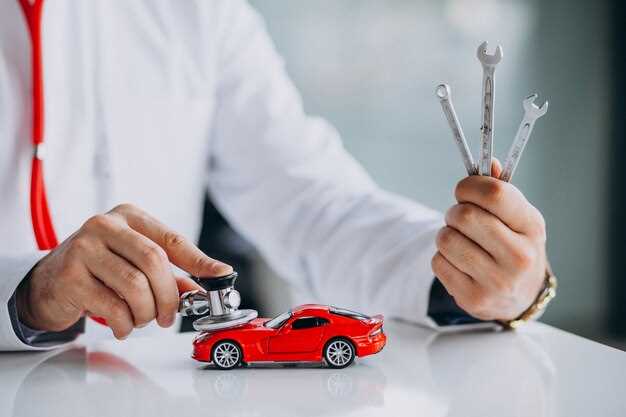
Owning an exotic car is not just about enjoying the sleek design and high performance; it also requires a commitment to proper maintenance. These luxurious machines demand attention to detail and regular upkeep to ensure they operate at their best. Failing to adhere to a specific maintenance routine can lead to significant performance issues and costly repairs.
Exotic vehicles are engineered with advanced technology and unique materials that require specialized care. Regular maintenance not only enhances the longevity of your car but also preserves its value over time. By following precise guidelines tailored for exotic cars, owners can ensure their investment remains in impeccable condition.
From routine oil changes to monitoring tire pressure, understanding the unique needs of your exotic car is essential. This article will provide practical tips and insights that every exotic car owner should know, equipping you with the knowledge to keep your vehicle running smoothly and looking stunning on the road.
Monitoring Tire Condition and Pressure Regularly
For exotic vehicles, regular maintenance is crucial to ensure optimal performance and safety. One of the most vital aspects of this maintenance is monitoring tire condition and pressure. Tires are the only point of contact between the vehicle and the road, making their integrity essential for handling, traction, and overall driving experience.
Start by visually inspecting the tires for any signs of wear or damage, such as cracks, bulges, or uneven tread wear. Uneven wear patterns can indicate alignment issues or improper inflation, which can affect both performance and comfort. Additionally, check the tread depth to ensure it meets the minimum safety standards. A tread depth gauge can be handy for this purpose, allowing for precise measurements.
Next, maintaining the correct tire pressure is equally important. Under-inflated tires can lead to excessive heat buildup, reduced fuel efficiency, and diminished handling capabilities. Conversely, over-inflated tires can cause a harsh ride and decrease the contact patch, potentially compromising safety. Regularly check tire pressure, ideally at least once a month, and adjust it to the manufacturer’s specifications, which can usually be found on a sticker inside the driver’s door or in the owner’s manual.
In addition to pressure checks, consider the impact of temperature changes on tire performance. Tires can lose air as temperatures drop, so it’s essential to be vigilant during seasonal changes. Also, rotating the tires according to the vehicle’s maintenance schedule helps promote even wear and extends their lifespan.
For those maintaining exotic vehicles, investing in high-quality tires designed specifically for their performance characteristics is advisable. These tires often come with specific maintenance requirements, so referencing the manufacturer’s guidelines will ensure that you preserve their performance and safety. Regularly monitoring tire condition and pressure not only enhances the longevity of the tires but also ensures a safe and exhilarating driving experience in your exotic vehicle.
Understanding the Importance of Fluid Changes

Proper maintenance of exotic cars significantly hinges on regular fluid changes. Unlike standard vehicles, exotic cars often operate under more intense conditions, which make fluid integrity critical for performance and longevity. Fluids, including engine oil, transmission fluid, brake fluid, coolant, and differential fluid, play a vital role in the smooth functioning of various car components.
Engine oil serves as the lifeblood of your exotic car’s engine, reducing friction and preventing overheating. Over time, oil can degrade and lose its protective properties, leading to increased engine wear and potential damage. Regular oil changes ensure optimal engine performance and efficiency, prolonging the life of the vehicle.
Transmission fluid is equally crucial, particularly in high-performance exotic cars that demand precise shifting under duress. Dirty or worn-out transmission fluid can jeopardize gear changes, causing delays or slips. Consistently replacing this fluid supports smooth, responsive driving experiences, essential for any exotic car enthusiast.
Braking systems in exotic cars require specific attention due to the high speeds they reach. Brake fluid absorbs moisture over time, which can reduce its boiling point and compromise braking performance. By changing the brake fluid regularly, you ensure reliable stopping power, enhancing both safety and driving dynamics.
Cooling systems are vital in exotic cars, where engines produce significant heat. Antifreeze and coolant degrade and lose their effectiveness, leading to overheating and potential engine failure. Routine fluid changes in the cooling system prevent such issues, maintaining optimal operating temperatures.
Lastly, differential fluid supports the vehicle’s acceleration and handling, especially in all-wheel-drive models. Dirty differential fluid can hinder performance, leading to reduced traction or increased wear. Regular changes foster better handling and a more engaging driving experience.
In summary, understanding the role of fluid changes is essential for maintaining the integrity and performance of exotic cars. Regular fluid maintenance not only protects vital engine components but also enhances the overall driving experience, ensuring that your exotic car remains in peak condition for years to come.
Scheduling Professional Inspections and Servicing

Maintaining an exotic vehicle requires meticulous attention to detail, and scheduling regular professional inspections and servicing is crucial for ensuring optimal performance and longevity. Unlike standard vehicles, exotic cars often have unique components and technologies that necessitate specialized knowledge.
Here are some essential considerations for scheduling inspections and servicing:
- Frequency of Inspections: Exotic vehicles should undergo professional inspections at least twice a year, or more often depending on usage. High-performance models may require monthly checks due to the strain on their systems.
- Timing: Schedule inspections during quieter seasons or periods when you’re not relying on the vehicle for daily use. This reduces the chances of interruptions and allows mechanics to perform comprehensive checks.
- Authorized Service Centers: Always choose certified service centers that specialize in exotic vehicles. These facilities have the necessary tools, equipment, and expertise to handle specific maintenance needs.
When arranging professional servicing, consider the following steps:
- Research: Investigate service centers that have a strong reputation in the exotic car community. Look for customer reviews and testimonials that reflect the quality of their work.
- Preparation: Before visiting, gather all maintenance records. This information helps technicians diagnose issues more effectively and provides a clear history of past services.
- Discuss Needs: Clearly communicate any specific concerns or performance issues to the technician. This collaboration ensures that all potential problems are thoroughly addressed during the service.
- Follow-Up: After servicing, schedule follow-up inspections as recommended by your mechanic. Keeping a consistent maintenance schedule is essential for the health of your exotic vehicle.
Investing time and resources into professional inspections and servicing is vital for the successful maintenance of your exotic car. By staying proactive, you can enhance its performance, safeguard against unexpected breakdowns, and ultimately protect your investment.



